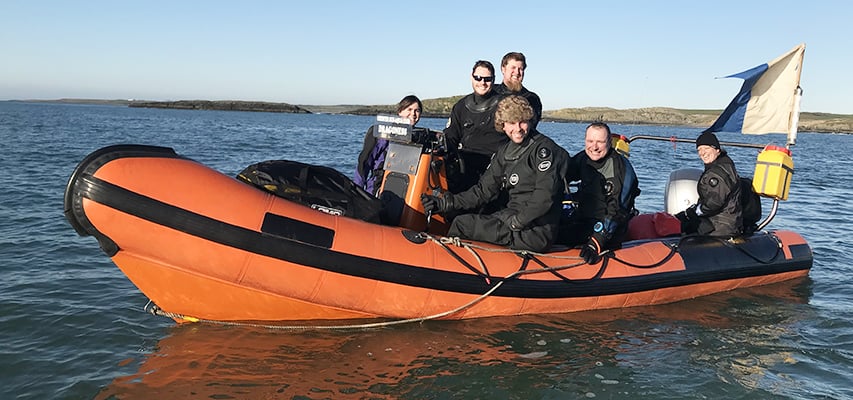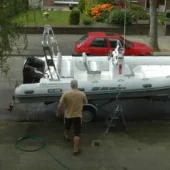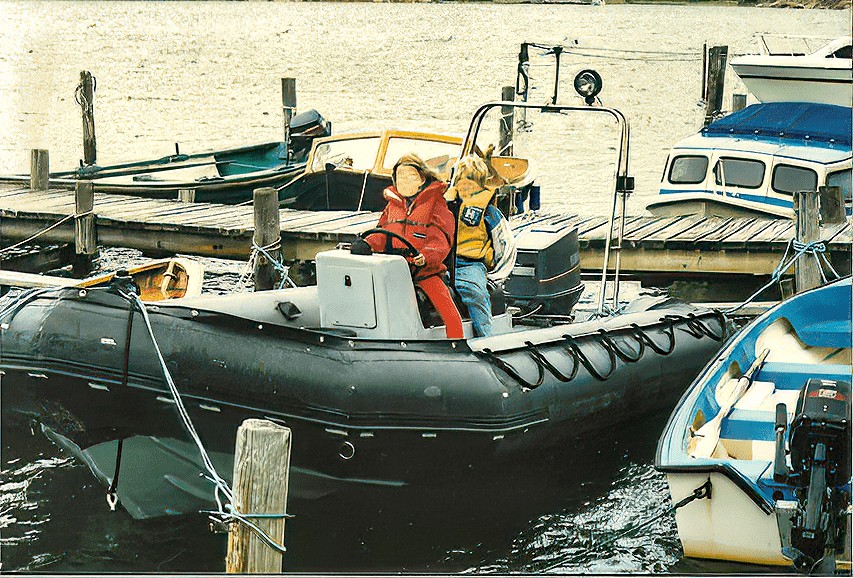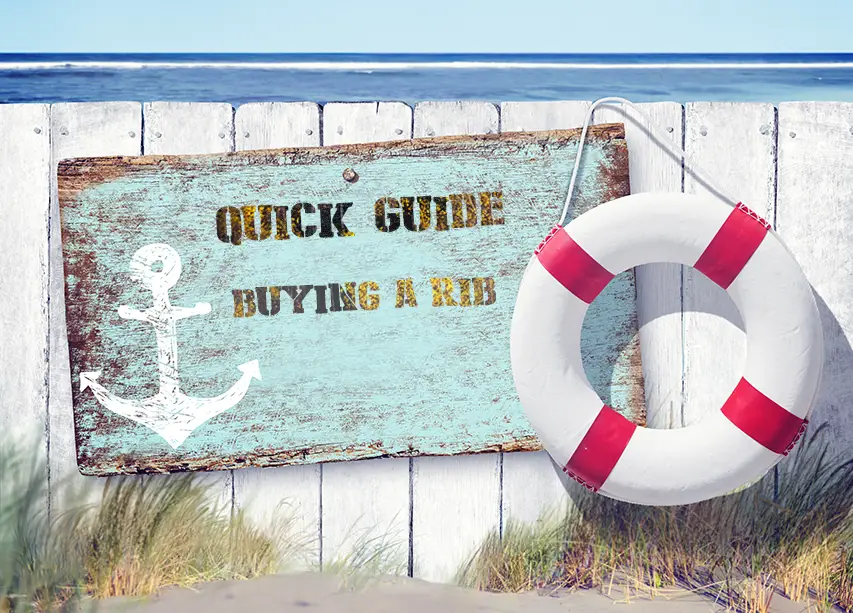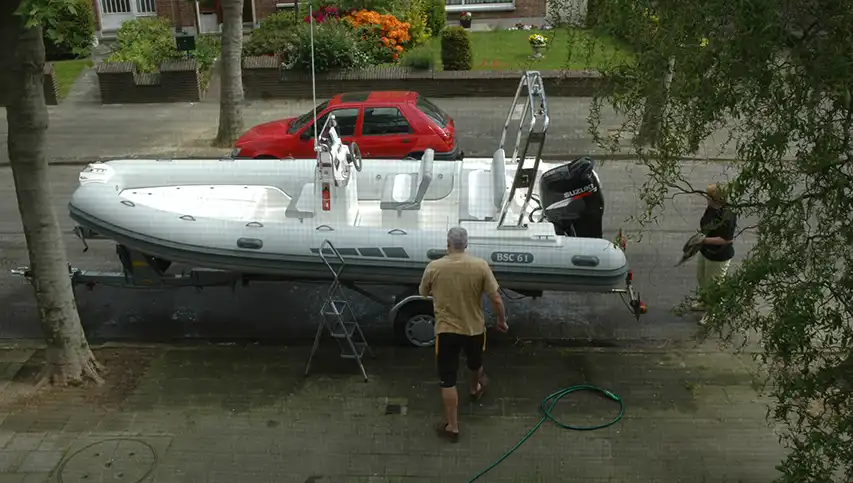
Table of Contents
Introduction
To keep a rigid inflatable boat (RIB) top-notch, functioning and looking new for many years, you need to take proper care and maintenance.
With some extra care, you will maintain its performance and quality. How to maintain a RIB top-notch is not that difficult.
When you buy a RIB, part of the after-sale service should incorporate how to care for the boat and ways that can impact its longevity.
It is not a rigorous process that consumes hours of your time. On the contrary, it is about consistent maintenance.
In this article, I will cover 4 main aspects to care for your Rigid Inflatable Boat and thus keeping it top-notch.
1. Taking Good Care right
Taking care of a RIB is not challenging, unlike a hard-sided boat that requires polishing. Compared to motor boats that have fiberglas exteriors, RIBs are mostly lighter because of the (inflatable) tubes in stead of fiberglas sides.
The RIB design is what makes it have numerous advantages as well as easy to maintain.
Ask the dealer explicitly how and with what you should maintain your precious RIB.
1. Cleaning/Washing
As a proud RIB owner, every time you finish a water adventure, consider giving it a proper washdown. If you use your RIB on saltwater, you should heed this advice more.
Saltwater corrodes and will damage parts of your boat if you don’t wash it off immediately. You can use the shower to rinse your RIB and the exterior of the engine(s).
A soft deck brush will do the job well to remove dirt and other debris from your boat. They are the best for clearing fallen food that might seep oil into the teak compromising its longevity.
The right brush to clean the surface is essential in RIB maintenance. A rigid brush on the non-slip surface and a softer brush for composite and wooden decks. If you prefer to use soap while cleaning, ensure that it is an environmentally friendly product.
Cleaning a RIB differs from cleaning a regular boat. A special “soap” approved for RIB cleaning is vital because of the siding material that makes it inflatable. When buying RIB cleaning products, look for the ones without harmful chemicals that would end up damaging your tubes and boat (see below).
August Race is widely spread and often used for cleaning amongst others the tubes.
In as much as RIBs are seaworthy and have proven to be tough, special care is the difference between regular repairs or practically none at all.
Understanding the fabric of your RIB, whether it is PVC or Hypalon, is one way of knowing which chemical products to avoid:
• Toluene
• MEK
• Acetone
• Abrasives like steel wool
• High-alkaline cleaner
• Bleach
• Ammonia cleaner
Soap and detergents that don’t contain these chemicals are safe to use, but use them sparingly. Also, ensure that you rinse with excess water so that the soap doesn’t leave any scum layer.
2. Storing Your RIB
After cleaning, you should consider proper storage methods. Inflatable boats don’t need to be docked on water if you want to keep using them for many years. Exposing it to things like algae, temperature changes, and bacteria will degrade the RIB rapidly (as is the case with all boats).
Before storing your boat, make sure it is dry and the storage space is devoid of rodents and pests. If you can, wrap the RIB using a plastic cover. Especially the tubes must be protected.
You can roll the RIB on a plastic cover and store it in a place where it can’t be affected by excessive humidity or heat. Avoid any impact or contact with adhesives.
If storing your RIB is part of your maintenance routine, consider the following preventative measures to avoid deterioration or damage.
• Keep the RIB Inflated
While a deflated RIB occupies less storage space, it should be only for a short interval and perhaps while in transit. It is not a good idea to keep them deflated for lengthy periods. They can easily get damaged when deflated because the siding gets creases and deforms.
Consequently, an inflated RIB is susceptible to kinks and bends that create weak spots, especially if stored in crowded spaces. When keeping your boat for more extended periods, ensure that it has enough lone space to avoid scratches and pinches from other objects.
• Cover Your RIB When Stored Outside
Never leave your RIB uncovered if you don’t plan to use it. Too much exposure to the UV rays degrades the rubber, and eventually, it will even tear off. All you need is a protective plastic cover that is breathable and keeps UV rays at bay.
• Keep it Dry
Mold or mildew is difficult to clean and creates more unnecessary work. If you are not using your boat, keep it dry and in a well-ventilated area. Ice isn’t good for a RIB boat. If you live in areas where temperatures reach freezing levels in the cold months, this can harm your RIB’s interior. Drain any unneeded water from the shower and the reservoir. Water expands when it freezes.
• Never Store Your RIB with Fuel
Many potential damages can happen by storing your boat with fuel in it. For starters, the separation of oil and gas if using a two-stroke engine is dangerous. Also, the condensation in the fuel tank has adverse effects over time on your boat. It’s an ongoing discussion: fill it up of leave it empty…
• Flush Your Boat Engine
Saltwater is corrosive and damages the engine if left unwashed. Flush your RIB engine using freshwater to ensure there are no traces of saltwater. This don’t have to take long. A minute of flushing is okay. Your engine must always be top-notch.
• Disconnect the Battery
It is not only safe to disconnect your RIB battery before storage, but it also extends its life. You never know, you may disconnect all your electronics, but they still find a parasitic draw that drains the charge from your battery. Never leave your battery attached to the electronic system.
• Check Your RIB’s Hull
Each time you take your boat off the water, perform a routine maintenance check. Check if the hull has acquired some imperfections or damage. Because you can see the bottom, touch it to feel if the gel coat is worn out or if it needs minor repairs before storage.
It is always better to leave your boat in good condition for the next time you will want to use it. Don’t postpone it, do it right away.
• Avoid Heated Areas
RIBs are not suited for icy and heated areas. Before you store your boat, avoid temperatures that can cause deformation to your inflated boat. Decks with dark cover absorb heat from the sun faster.
• Inflation After Storage
If you prefer storing your boat while deflated, ensure that you stick to the manufacturers’ recommended pressure. Inflate the chambers in a counter-clockwise direction and remember to do so in a cool shaded area.
Under-inflate so that you leave room for expansion when the tubes absorb heat from the sun. This is especially so when your RIB has black tubes.
• Wash the Ropes
Mostly forgotten is the need to rinse your ropes you use with your RIB. Put them in a bucket of water and let them rest for half a day. Then press the water out by hand and hang the ropes so that they can drain out the rinsing water.
• Check Your Electronics
Activate your batteries and check every instrument you have on your console. Do this from time to time when your RIB is stored.
2. Caring for the Trailer
If you prefer storing your RIB on a boat trailer, there are several precautions you should take to keep it also top-notch.
Protect the winch by regular maintenance to unwind the wire cable and retract it as you pull in your boat. The trailer walkboard wheels also need care and maintenance to ensure the boat is firmly held in place while in transit.
Other RIB trailer care includes:
• Releasing the Handbrake
Choke the wheels of your trailer using bricks or wood and not the handbrake. It prevents the trailer from seizing while engaged.
• Wash the Brakes
Your trailer may get in contact with salt water as you launch your boat into the water. To prevent the trailer wheels from damage and corrosion, wash them with plenty fresh water. Some trailer companies have a flush option: the water hoses are tied to the trailer and lead directly to the brakes.
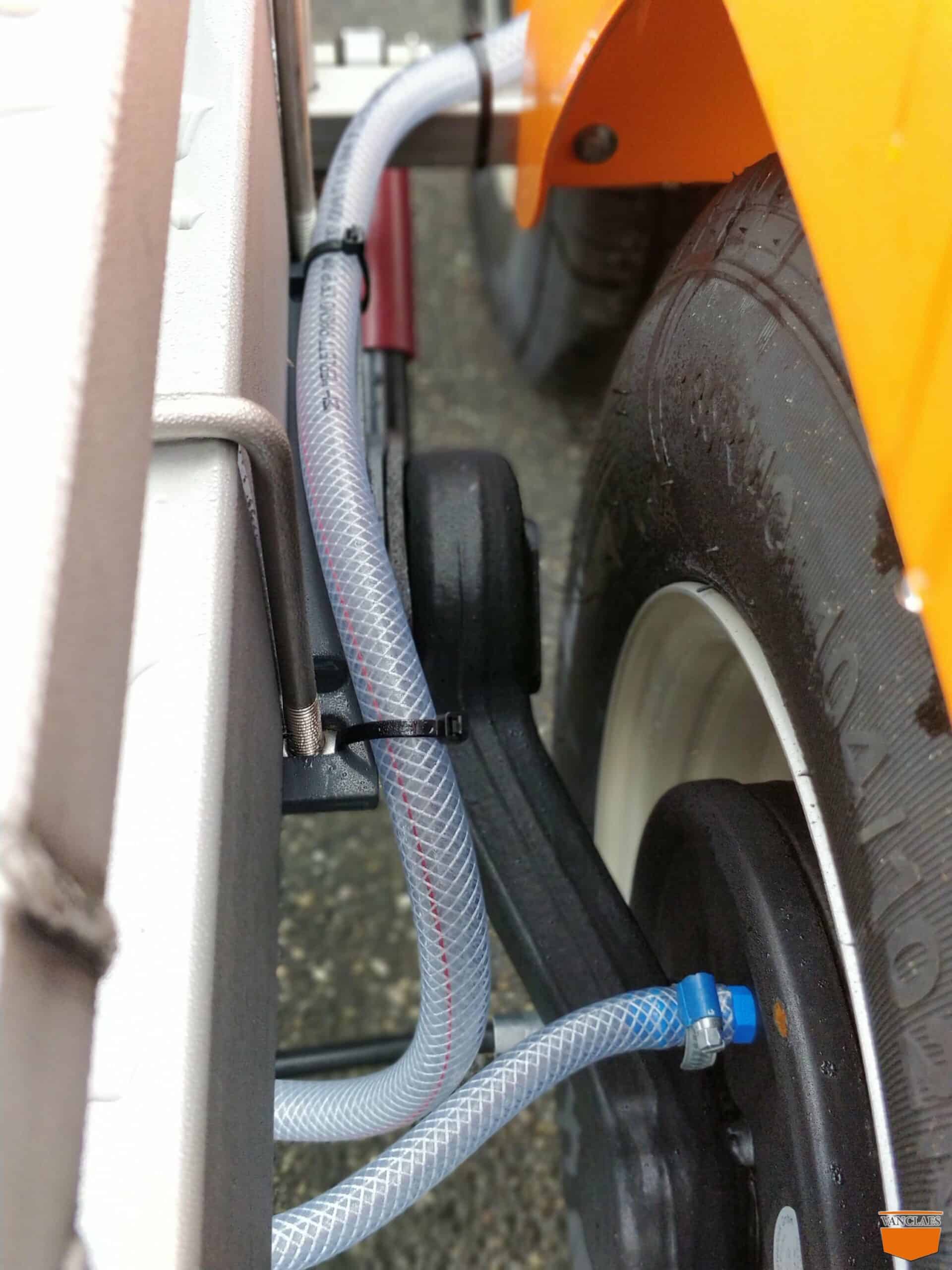
Rinsing system to flush out salt crystals, sand and dirt from the brake drums. When the drum brakes go underwater while skidding on the trailer ramp, sand and dirt often gets into the wheel drums.
Even more annoying is that the salt water that remains behind in the drums after drying leaves behind the so-called salt crystals that directly affect the braking technique.
It is therefore advisable to rinse the brake drums with clean tap water after each dive by connecting the garden hose to this handy flushing system.
• Trailer Lights
Not everyone has waterproof lights, but it is highly recommended. Ensure that your trailer lights are working, especially after long-term storage. A break-away cable acts as a secondary brake should your trailer detach from your vehicle as you tow your RIB.
Keeping your trailer top-notch guarantees the safety of your RIB while in storage. Because the cold season can be long, take this time to keep your boat and your trailer top-notch. Ensure that the brake pads are working and all electrical connections are repaired.
3. Protecting Your RIB’s Upholstery
RIBs also need to be aesthetically appealing. Your upholstery is the padded cover that protects the “furniture”. You can maintain it by keeping it clean to avoid lasting marks. Always use cleaners suitable for the vinyl seating, and that is nonreactive.
Avoid exposing your upholstery to the sun if you can always cover your seats. You can use quick remove covers that are also easy to put on. There are RIB sprays that keep the upholstery shining and protected from UV rays for years.
4. Engine Maintenance
Engine maintenance is a bit technical. But you can refer to your manufacture’s recommendations for the proper engine care. The RIB’s engine stays on top of oil changes and fuel filter replacements.
Or you can consult a marine mechanic to service your RIB engine before taking it out again. A maintenance schedule is the best way to ensure your boat performs long-term and avoids anything wrong while in deep waters. Engine replacements are costly, and maintenance prevents regular breakdowns.
Conclusion
A RIB is not cheap and you want it to use for a long time. Through repair and careful maintenance, your RIB will last longer than it should. Top-notch should be your aim number one.
Ultimately, owning a RIB means you are subject to regular boat inspections. Follow the advice I’ve written here and let a mechanic help you with checking the engine if you’re not into it.
If you have questions or experiences to share about keeping your RIB top-notch, share your info in our RIBs ONLY Facebook group.
If you take good care for your RIB, you will have more fun with it!
